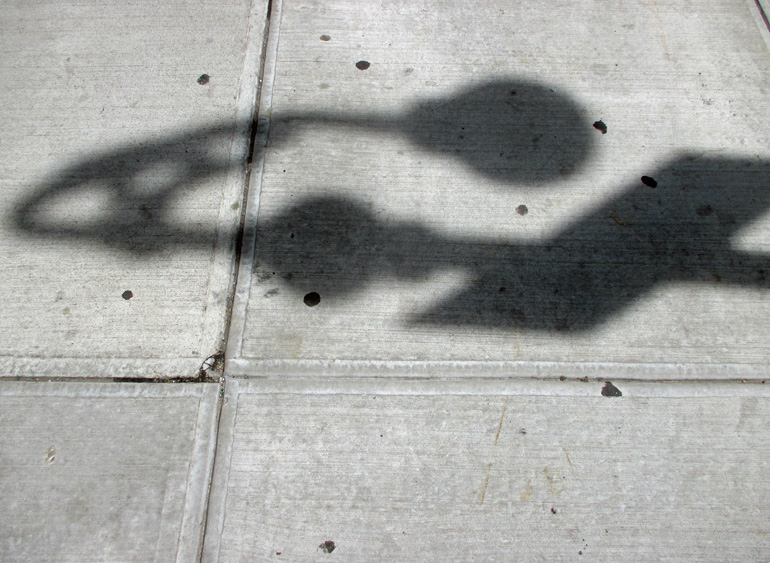Gotham Diary:
Week in Progress
May 2018 (I)
Friday 4th
Of all her many novels, Penelope Fitzgerald’s Heat Wave is my favorite. Although on its surface an unremarkably representational narrative, generously supplied with the telling details of an accomplished English fiction, its starkly troubled depth is never out of view — or out of touch, perhaps. It vibrates off the page like the wheat that “hisses” in the summer heat; later it hums like the harvesting combine. It takes possession of the principal character, Pauline Carter, as she worries about the state of her daughter’s marriage.
Keeping this worry on the boil, Pauline, Teresa, and Teresa’s husband, Morris, are spending the summer together in a pair of attached stone cottages. The cottages stand in the middle of a field, somewhere in the South of England. Pauline bought them some time ago. She uses the smaller one, and has given Teresa the larger. This summer, Maurice, who is finishing up a book (a cheeky interrogation of local tourism), has decided to decamp to the cottage for the entire summer. I ought to mention that Teresa and Maurice have a little boy, two year-old Luke. Never has a child filled any novel with so much vivid but unconscious vulnerability.
It does not take long for the reader to discover that Pauline, who knew Maurice for several years before inviting him to a party, where he met her daughter, is not keen on her son-in-law.
Only when you know Maurice well — when you have had occasion to observe his habits over time — only then do you see that he practises a system of relentless manipulation. (20)
Pauline knows Maurice well. She does not trust him at all. She watches intently as he flirts, discreetly but unmistakably, with his editor’s girlfriend. Pauline is reminded of an earlier self, a young mother whose husband, Harry, an ambitious university professor, seemed to feed his career on the attention of female students. It is a tale that is possibly the most oft-told in modern fiction, but a great part of the pleasure of Heat Wave is watching Lively make it new. Pauline’s suffering and anger ought to be dispelling, but the genius loci keeps it fresh and cool, even as the cottages and the wheat bake in the ever-hotter sun. I don’t know how she does it, but Lively pins up against the oppressive brilliance of her setting a negative image, black as a starless night, that keens with the outrage of a Medea. There is no reason to fear that this will infect Pauline; she was long ago inoculated by it. She longs to spare her daughter the experience.
Because of other things that I’ve been reading, a line at the end of Chapter Twelve stood out in blinking bold-face. It is nothing but what guilty husbands tend to say, but this time it carried, for me, immense moral, as distinct from narrative, freight. When Pauline finally asks Harry why he’s unfaithful, “he shrugs.”
“These things happen, Pauline,” he says. “There isn’t anything I can do about it.” (154)
And I thought: that is depravity. What Harry says (as well as what he does) to Pauline is inhumane: no human being ought to be treated as he treats her, no matter how common such nastiness might be. But what he says to himself, implicitly — that he can’t do anything about it — is, to the extent that he takes it to be a true statement, depraved. Depravity is what happens when you stop treating yourself as a human being. Please note: Harry’s infidelities are not the issue here. The issue is the collapse of his responsibility for them. These things happen.
I am more and more convinced that the very idea of evil is thoroughly childish, and that adults ought to outgrow it. Evil is a thing, a blob, a vampire maybe, that can turn you into a monster. The ease with which people allow themselves to dismiss other people as monsters seems to me to be on the same order of moral turpitude as Harry’s exculpation. Evil is — exciting. The terrible things that happen in real life are rarely that. They’re grim and monotonous and wretchedly familiar. I am not talking about the horrors of psychopaths or other organically defective human beings. I’m talking about healthy men and women who let themselves get away with things, and who do it so carefully and successfully that they almost lose sight of the fact that they’re doing wrong. There is nothing monstrous about it. If they do, finally, lose sight of right and wrong, then their connection with themselves becomes depraved, a matter of lies. The difference between depravity and evil is merely poetic: we like to make evil out to be bigger and stronger than we are. Depravity is nothing but diminishment.
In the final pages of Heat Wave, Maurice says much the same thing as Harry, and what happens next is the climax.
Bon week-end à tous!

